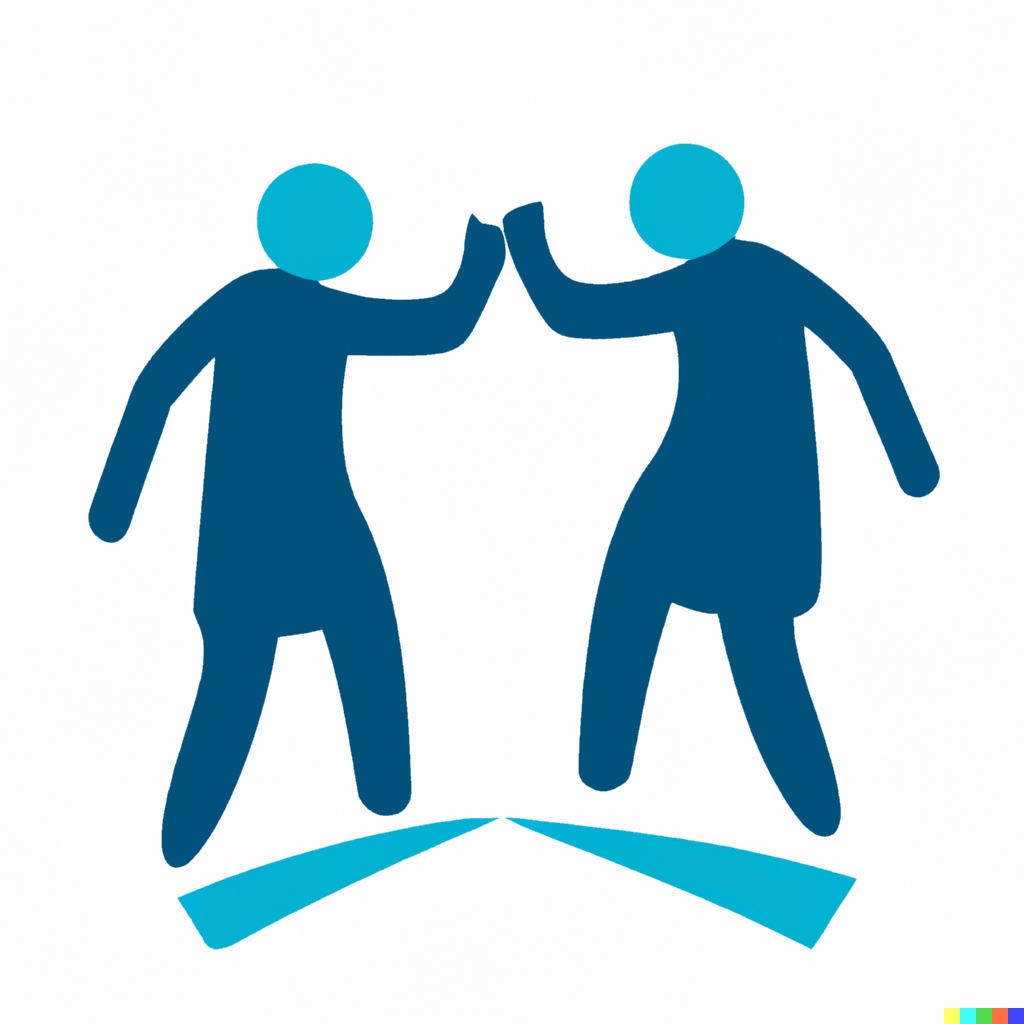Begin Again
Today’s Tuesday Reading is from Roel Muñoz, Digital Imaging Manager at the Princeton University Library. Roel is a current MOR program participant. He may be reached at [email protected] or via LinkedIn.
In reflecting on how my experience with leadership has evolved, I think back to my university days and how leadership is a continuous learning process. One of my final courses before completing my undergraduate degree was a literature course that required us to keep a journal on what we were reading and how it intersected with our lives. The course was called “Literature as Social Criticism.” We read The Jungle, The House of Mirth, and Native Son among other titles.
As part of our final grade, we turned in our journals for review by our professor, who commented heavily on mine. As I paged through my journal reading the comments, I realized that many of the comments were questions, forcing me to reflect on my own reflections. Some of the questions helped me understand the novel more deeply than on initial reading and some of the comments were cutting and incisive. Next to the grade for a class I’d come to enjoy greatly was a final comment by my professor that has remained with me:
Be a learner. Be a teacher. Begin again.
In the time that has passed since my undergraduate days, I can’t say that I’ve kept up journaling with any regularity. As a matter of fact, my favorite form of self-expression is photography, but meaningful principles of reflection have stayed with me. As I’ve completed major projects in my career, gone through big events in my life, or tried to understand new responsibilities, I’ve often said two words to myself: “Begin again.”
Like many of my MOR colleagues, I have begun using tools and ideas that we’re learning in order to change how I work and to help lead my group to become leaders themselves. One of these tools is delegation. Delegation is more than asking others to take on tasks. Coaching and preparing staff to handle these new responsibilities is critical.
As I’ve begun to delegate, I’ve had an “aha” realization. I’m not imposing on my staff’s time. I’m feeding their desire to learn and grow in their professional lives. My team has readily accepted ownership and responsibility for new tasks that have encouraged them to see issues from a higher perspective. This simple realization of how my team has received this change opens possibilities for what we can do together. If my team members are seen as knowledgeable leaders, they become key resources for the services we provide. It creates capacity for change and growth both as an organization and individually as professionals.
As part of delegating, I’ve scheduled time to work with them and help them see our organization with more clarity. Libraries are often perceived from ground level; buildings with books and quiet corners to study. In fact, academic libraries are critical tools in scholarly pursuit. The work my team does involves making our collections visible to a worldwide audience, exposing them to scholars who are developing ideas for research. When staff sees the importance of the work they do and its importance to patrons of the organization, they begin to see their work through new lenses. I sincerely hope that one of the realizations they make is that they are not making a sacrifice in taking on new tasks. Rather, they are making valuable contributions to scholarship.
Personally, as I’ve begun to learn to see our contributions through strategic, political, and cultural lenses, I’m seeing how much more insight I can gain from these perspectives. I’ll admit that I had some tunnel vision when thinking about projects. It seems easy to maintain steady progress and simply complete tasks. With new perspectives to explore I might be able to see opportunities for improvement. Case in point: our imaging studio works closely with other departments to digitize materials for scholars who are doing research or publishing papers or articles. As I think about this work, I try to see it through new lenses. Can the work be streamlined? Can the images themselves offer new information for research? Should this remain a service or be an integral part of the library’s mission?
I have begun to grasp the importance of constant learning in leadership. I didn’t know how my staff would feel about having projects delegated to them. Using some of the coaching tools we’ve learned about has turned that into a positive experience. To gain clarity on issues where our group can have a positive influence, I’ve begun to practice shifting my perspective and using different lenses to gain insight. I’d like to think of our MOR journey as a fresh start to becoming better leaders. Let’s all begin again; to use the tools we’re learning about and apply them in our work as coaches and leaders.

When is the last time you “began again” in your leadership approach, either something big or small?
Last week we asked what is the most impactful thing someone does to help you believe in yourself.
- 27% said expresses confidence in my abilities
- 18% said empowers me to make my own choices
- 15% said creates a safe space for risk-taking
- 14% said stands by me through thick and thin
- 10% said acknowledges my potential
- 9% said cheers my growth and development
- 6% said celebrates my wins
Helping someone believe in themselves is fundamentally about helping them believe in themselves the way you believe in them, and creating the space for them to shine. The list above provides concrete actions we can take to help others believe in themselves. It begins by letting them know you believe in them. Considering today’s reading, our own learning and development provide great opportunities to help others learn and develop as well. In particular, delegation is a powerful way to say I believe in you.

- July 2025 (1)
- June 2025 (4)
- May 2025 (5)
- April 2025 (5)
- March 2025 (4)
- February 2025 (4)
- January 2025 (4)
- December 2024 (3)
- November 2024 (4)
- October 2024 (5)
- September 2024 (4)
- August 2024 (4)
- July 2024 (5)
- June 2024 (4)
- May 2024 (4)
- April 2024 (5)
- March 2024 (4)
- February 2024 (4)
- January 2024 (5)
- December 2023 (3)
- November 2023 (4)
- October 2023 (5)
- September 2023 (4)
- August 2023 (4)
- July 2023 (4)
- June 2023 (4)
- May 2023 (5)
- April 2023 (4)
- March 2023 (1)
- February 2023 (1)
- January 2023 (4)
- December 2022 (3)
- November 2022 (5)
- October 2022 (4)
- September 2022 (4)
- August 2022 (5)
- July 2022 (4)
- June 2022 (4)
- May 2022 (5)
- April 2022 (4)
- March 2022 (5)
- February 2022 (3)
- January 2022 (4)
- December 2021 (3)
- November 2021 (4)
- October 2021 (3)
- September 2021 (4)
- August 2021 (4)
- July 2021 (4)
- June 2021 (5)
- May 2021 (4)
- April 2021 (4)
- March 2021 (5)
- February 2021 (4)
- January 2021 (4)
- December 2020 (4)
- November 2020 (4)
- October 2020 (6)
- September 2020 (5)
- August 2020 (4)
- July 2020 (7)
- June 2020 (7)
- May 2020 (5)
- April 2020 (4)
- March 2020 (5)
- February 2020 (4)
- January 2020 (4)
- December 2019 (2)
- November 2019 (4)
- October 2019 (4)
- September 2019 (3)
- August 2019 (3)
- July 2019 (2)
- June 2019 (4)
- May 2019 (3)
- April 2019 (5)
- March 2019 (4)
- February 2019 (3)
- January 2019 (5)
- December 2018 (2)
- November 2018 (4)
- October 2018 (5)
- September 2018 (3)
- August 2018 (3)
- July 2018 (4)
- June 2018 (4)
- May 2018 (5)
- April 2018 (4)
- March 2018 (5)
- February 2018 (5)
- January 2018 (3)
- December 2017 (3)
- November 2017 (4)
- October 2017 (5)
- September 2017 (3)
- August 2017 (5)
- July 2017 (3)
- June 2017 (8)
- May 2017 (5)
- April 2017 (4)
- March 2017 (4)
- February 2017 (4)
- January 2017 (4)
- December 2016 (2)
- November 2016 (7)
- October 2016 (5)
- September 2016 (8)
- August 2016 (5)
- July 2016 (4)
- June 2016 (12)
- May 2016 (5)
- April 2016 (4)
- March 2016 (7)
- February 2016 (4)
- January 2016 (10)
- December 2015 (4)
- November 2015 (6)
- October 2015 (4)
- September 2015 (7)
- August 2015 (5)
- July 2015 (6)
- June 2015 (12)
- May 2015 (4)
- April 2015 (6)
- March 2015 (10)
- February 2015 (4)
- January 2015 (4)
- December 2014 (3)
- November 2014 (5)
- October 2014 (4)
- September 2014 (6)
- August 2014 (4)
- July 2014 (4)
- June 2014 (4)
- May 2014 (5)
- April 2014 (5)
- March 2014 (5)
- February 2014 (4)
- January 2014 (5)
- December 2013 (5)
- November 2013 (5)
- October 2013 (10)
- September 2013 (4)
- August 2013 (5)
- July 2013 (8)
- June 2013 (6)
- May 2013 (4)
- April 2013 (5)
- March 2013 (4)
- February 2013 (4)
- January 2013 (5)
- December 2012 (3)
- November 2012 (4)
- October 2012 (5)
- September 2012 (4)
- August 2012 (4)
- July 2012 (5)
- June 2012 (4)
- May 2012 (5)
- April 2012 (4)
- March 2012 (4)
- February 2012 (4)
- January 2012 (4)
- December 2011 (3)
- November 2011 (5)
- October 2011 (4)
- September 2011 (4)
- August 2011 (4)
- July 2011 (4)
- June 2011 (5)
- May 2011 (5)
- April 2011 (3)
- March 2011 (4)
- February 2011 (4)
- January 2011 (4)
- December 2010 (3)
- November 2010 (4)
- October 2010 (4)
- September 2010 (3)
- August 2010 (5)
- July 2010 (4)
- June 2010 (5)
- May 2010 (4)
- April 2010 (3)
- March 2010 (2)
- February 2010 (4)
- January 2010 (4)
- December 2009 (4)
- November 2009 (4)
- October 2009 (4)
- September 2009 (4)
- August 2009 (3)
- July 2009 (3)
- June 2009 (3)
- May 2009 (4)
- April 2009 (4)
- March 2009 (2)
- February 2009 (3)
- January 2009 (3)
- December 2008 (3)
- November 2008 (3)
- October 2008 (3)
- August 2008 (3)
- July 2008 (4)
- May 2008 (2)
- April 2008 (2)
- March 2008 (2)
- February 2008 (1)
- January 2008 (1)
- December 2007 (3)
- November 2007 (3)
- October 2007 (3)
- September 2007 (1)
- August 2007 (2)
- July 2007 (4)
- June 2007 (2)
- May 2007 (3)
- April 2007 (1)
- March 2007 (2)
- February 2007 (2)
- January 2007 (3)
- December 2006 (1)
- November 2006 (1)
- October 2006 (1)
- September 2006 (3)
- August 2006 (1)
- June 2006 (2)
- April 2006 (1)
- March 2006 (1)
- February 2006 (1)
- January 2006 (1)
- December 2005 (1)
- November 2005 (2)
- October 2005 (1)
- August 2005 (1)
- July 2005 (1)
- April 2005 (2)
- March 2005 (4)
- February 2005 (2)
- December 2004 (1)